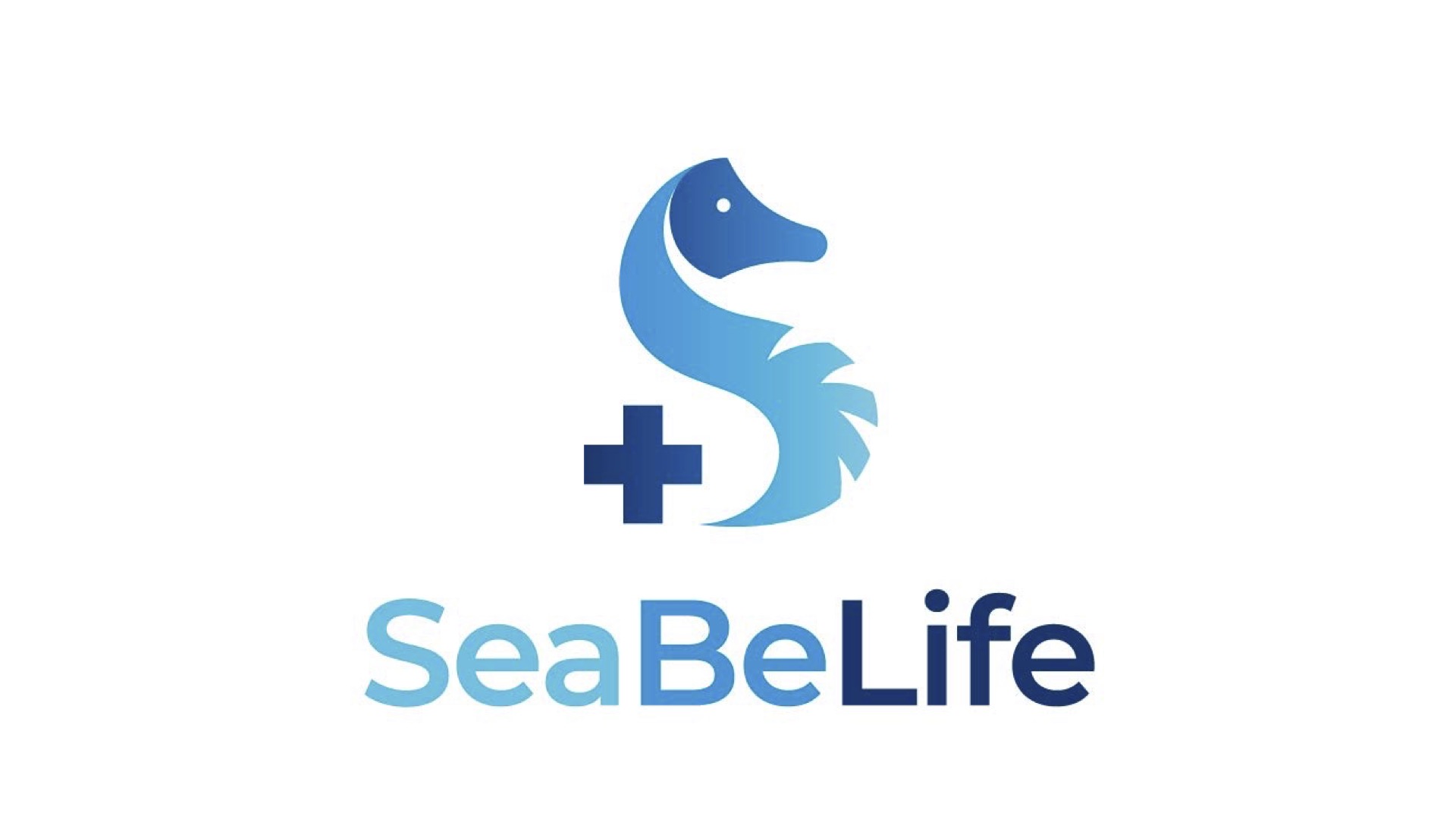Share this post:

Professor Jean-Pierre Kinet, chairman of iXLife, joins SeaBeLife’s strategic committee to support regulatory development of the company’s unique drug candidates targeting two regulated cell death pathways
Roscoff, France, September 26, 2023 – SeaBeLife, a biotech company developing drug candidates intended to block cell necrosis, today announces €1.2M ($1.28M) in additional seed funding from the iXLife fund and business angel networks. These have contributed to the company’s financing in the past and include: Breizh Angels, Angels Santé, WeLike and BAdGE. This latest round sees Professor Kinet, chairman of iXLife, join SeaBeLife’s strategic committee. The company has raised €1.6M ($1.74M) in seed funding from business angels since 2020.
This fundraising will help SeaBeLife finance the regulatory development of its drug candidates, notably for acute liver disease and eye disorders, and leverage its unique patented technology that targets two regulated cell death pathways. The funding also enables team expansion, with the hiring of several high-level specialists to set up clinical trials. The company expects to launch a Phase I trial in severe hepatitis in 2024. It is also working to strengthen its strategic partnerships, especially with pharmaceutical companies active in eye disorders, and to optimize its drug candidates with the aim of addressing neurodegenerative diseases by 2025.
“We are delighted to welcome Professor Kinet, representing iXLife, to our strategic committee. As a renowned physician with unique experience in building biotech businesses in Europe and the US, Professor Kinet’s support and those of our historical investors, as well as this intermediate funding, will give us the means to use our unique cell preservation and protection technologies in serious liver and eye disorders. In time we will extend them to brain pathologies,” said Morgane Rousselot, CEO and co-founder of SeaBeLife. “With this vision, we are actively preparing for Series A fundraising from venture capital funds, institutional funds and family offices. We aim to continue developing our technology in the treatment of acute liver failure (ALF), serious ophthalmologic disorders and neurodegenerative diseases.”
“iXLife is delighted to become a shareholder in SeaBeLife and to support its innovative strategy of dual targeting of necroptosis and ferroptosis. We are convinced that this one-of-a-kind approach has the potential to protect cells affected by certain disorders, including acute liver disease. Clinical development in this indication is due to kick off in 2024,” said Professor Kinet, chairman and director of the iXLife fund.
Prof. Kinet has been an emeritus professor at Harvard Medical School (HMS) since 2017. From 1995 to 2017, he was director of the Division of Allergy and Immunology at Harvard’s Beth Israel Deaconess Medical Center. Prior to that, he was head of the Molecular Allergy and Immunology Department at the National Institute of Allergy and Infectious Diseases (NIAID) of the National Institutes of Health (NIH) in the US. Prof. Kinet has authored over 200 publications and is listed as the inventor of 67 families of issued patents. He is known for discovering and characterizing the genes encoding the high-affinity IgE receptor and for cloning the subunits. He is co-founder of AB Science (Euronext: AB) and founder of Astarix (US), since acquired by Heska. Prof. Kinet is a former director of UCB Board and a former member of the UCB scientific advisory board. He received his medical degree at the University of Liège, in Belgium.
About regulated cell death and SeaBeLife’s technology
When a cell is ready to die, there are several modes in which it can do so. In the case of certain pathologies, a phenomenon called necroptosis occurs, which is a form of regulated necrosis. Unfortunately, necroptosis results in inflammation, which damages surrounding tissue and can affect the prognosis of the associated disease.
SeaBeLife’s molecules have a unique property that make them particularly effective: they also combat another specific mode of regulated cell death, ferroptosis. Recently, it was demonstrated that this dual action is essential to the inhibition of regulated necrosis in treating certain pathologies. The crosstalk between necroptosis and ferroptosis triggers runaway cell death regardless of the origin of the pathology.
The company’s primary focus is acute liver disease (acute hepatitis and fulminant hepatitis), a very serious disorder necessitating intensive care. A liver transplant has to be considered in some cases and the condition is life-threatening, with a mortality rate of 30%. Paracetamol poisoning is still the leading cause of hepatotoxicity and is the priority target. While paracetamol is one of the most widely used medicines in the world, if used at an incorrect dose, it can cause severe and even fatal liver problems.
About iXLife
iXLife is a private investment fund with a portfolio that includes the following companies: Theravectys, Vaxon Biotech, Kriptic Pharmaceuticals, Pharmaleads, SeaBeLife, Inorevia, Hekat, Atanis Biotech and AGEless.
www.ixlife.com
About SeaBeLife
SeaBeLife is a biotechnology company specialized in the development of drug candidates that block cellular necrosis in order to protect or regenerate organs affected by severe pathologies – for which there are no alternative, effective treatments.
The company mainly focuses on acute liver disease (acute hepatitis and fulminant hepatitis), including paracetamol poisoning, but is also pursuing research into age-related macular degeneration (AMD), Parkinson’s disease and other neurodegenerative diseases (including Alzheimer’s).
SeaBeLife’s platform technology centers around a portfolio of more than 150 biologically active relevant molecules, which have the unique characteristic of inhibiting two forms of regulated and programmed cell death – necroptosis and ferroptosis – in pathological conditions. The company has filed five patents to protect the applications of these molecules.
Two active molecules are currently in preclinical development: SBL01 for the treatment of severe hepatitis, for which SeaBeLife has achieved convincing in vivo proofs of concept, with clinical development expected to commence in 2024; and SBL02 to prevent vision loss in patients with dry AMD, for which the company has completed preliminary in vivo POCs.
Founded in 2019 and based in Roscoff in Brittany, France, SeaBeLife is led by CEO and co-founder Morgane Rousselot, who holds a PhD in biochemistry from Sorbonne University/the French National Center for Scientific Research (CNRS)/Roscoff Marine Station. The company’s activities are based on the research work of Stéphane Bach, PhD, CNRS research engineer and scientific lead at the Roscoff screening platform, Marie-Thérèse Dimanche-Boitrel, research director at IRSET (the French institute for research in environmental and occupational health), and Claire Delehouzé, a biotechnology engineer, co-founder and CTO at SeaBeLife.
SeaBeLife currently employs eight people and has raised €5.5M ($5.86M) in private equity and grants since its creation. The company also benefits from the support of numerous partners, including SATT Ouest Valorisation, Biotech Santé Bretagne, Bpifrance and the regional council of Brittany.
www.seabelife.com
To download documents, you can right-click on the links above and chose « Save link as… »




